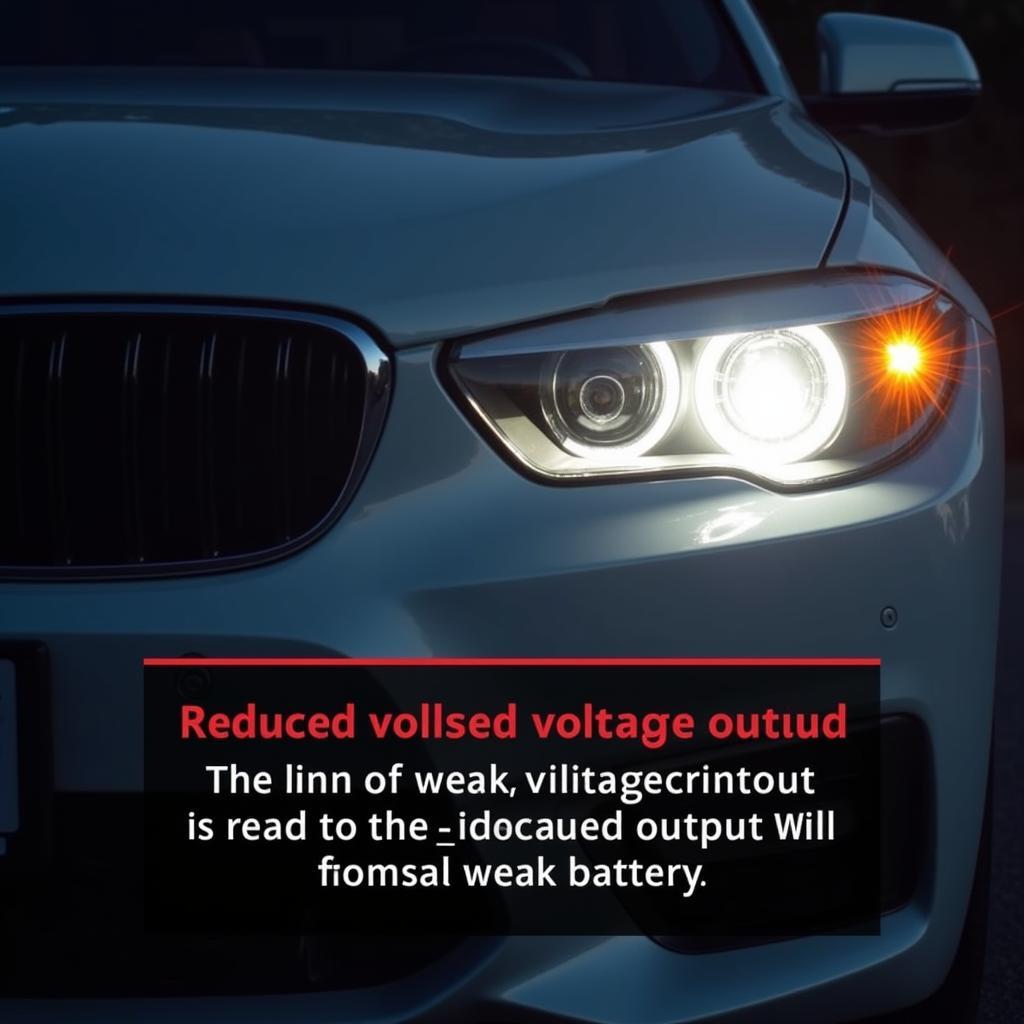A dead car battery can ruin your day. Knowing the signs my battery is going bad can save you from being stranded. This article will cover the key indicators of a failing car battery, from slow engine cranking to flickering lights, and provide expert advice on what to do when you notice these symptoms.
Recognizing a Dying Car Battery: The Telltale Signs
Identifying a failing battery early can prevent unexpected breakdowns. Several key symptoms can alert you to a potential problem. These include slow engine cranking, dim headlights, clicking sounds when turning the key, and a swollen battery case. Ignoring these signs can lead to being stranded and potentially costly repairs.
Slow Engine Cranking: A Classic Symptom
One of the most common signs of a failing battery is a slow engine crank. If your engine takes longer than usual to start, or if the cranking sounds sluggish, it’s a strong indication that your battery is losing its ability to hold a charge. This slow cranking occurs because the battery doesn’t have enough power to turn the starter motor efficiently.
Dim Headlights and Electrical Issues
A weakened battery often struggles to power the car’s electrical systems, leading to dim headlights, especially when the engine isn’t running. You might also notice flickering interior lights or malfunctioning power windows and locks. These are all signs that the battery is not delivering sufficient voltage.
“A common misconception is that a jump start is a permanent fix for a dying battery. While it gets you going temporarily, it’s crucial to address the underlying issue and get the battery tested,” says John Miller, Automotive Electrical Systems Engineer at Car Diagnostics Inc.  Dim Headlights Indicating Car Battery Problems
Dim Headlights Indicating Car Battery Problems
Clicking Sounds and a Swollen Battery Case
If you hear rapid clicking sounds when you turn the key, but the engine doesn’t crank, it usually means the battery doesn’t have enough power to engage the starter solenoid. A swollen or misshapen battery case is another serious sign. This indicates excessive heat buildup within the battery, which can be caused by internal damage or overcharging. It’s a safety hazard and requires immediate attention.
How to Activate Anti-theft Alarm in Vitara Brezza
how to activate anti theft alarm in vitara brezza Knowing about your anti theft alarm system is an important part of owning a car.
Testing and Replacing Your Car Battery: Taking Action
If you suspect your battery is failing, it’s essential to get it tested. You can use a multimeter to check the battery’s voltage, or you can take your car to a mechanic or auto parts store for a free battery test. If the test confirms a weak battery, replacing it is the best course of action.
“Regular battery maintenance, such as cleaning the terminals and checking the electrolyte level (in serviceable batteries), can extend its lifespan,” advises Sarah Chen, Lead Technician at Auto Repair Solutions.
Conclusion: Don’t Get Caught Off Guard
Knowing the signs my battery is going bad can help you avoid unexpected breakdowns and costly repairs. By paying attention to the symptoms discussed above and taking prompt action, you can ensure your car starts reliably every time.
FAQ
- How long do car batteries typically last? Most car batteries last between three and five years.
- Can extreme temperatures affect battery life? Yes, both extreme heat and cold can shorten a battery’s lifespan.
- What should I do if my car battery dies while I’m driving? Carefully pull over to a safe location and call for roadside assistance.
- Is it safe to jump-start a car with a swollen battery case? No, it’s dangerous to jump-start a battery with a swollen case due to the risk of explosion.
- Can I replace my car battery myself? Yes, but it’s recommended to consult your car’s owner’s manual for specific instructions.
- How can I prevent my car battery from dying prematurely? Regular maintenance, avoiding short trips, and turning off all accessories when the engine is off can help prolong battery life.
- What is the cost of a new car battery? The price varies depending on the type and size of battery, but typically ranges from $50 to $200.

